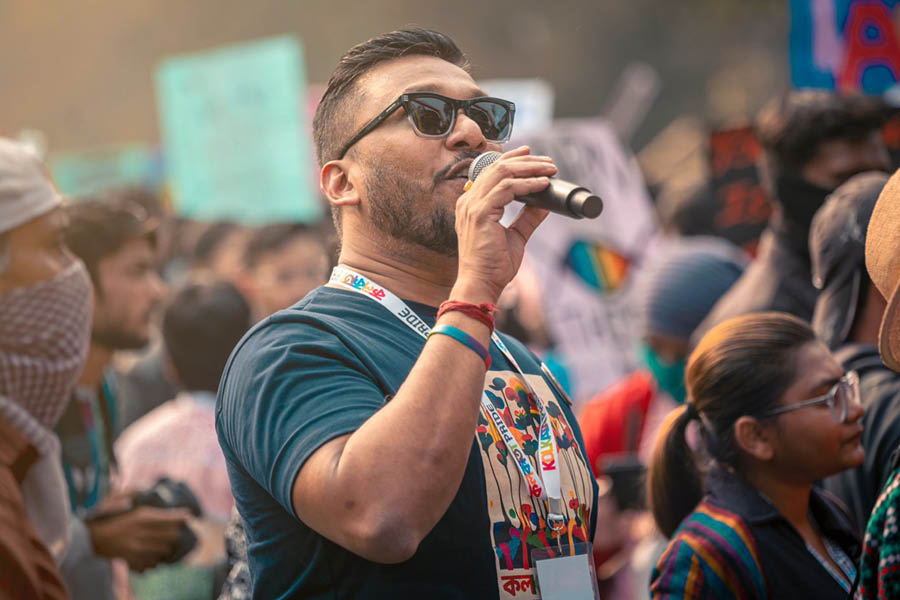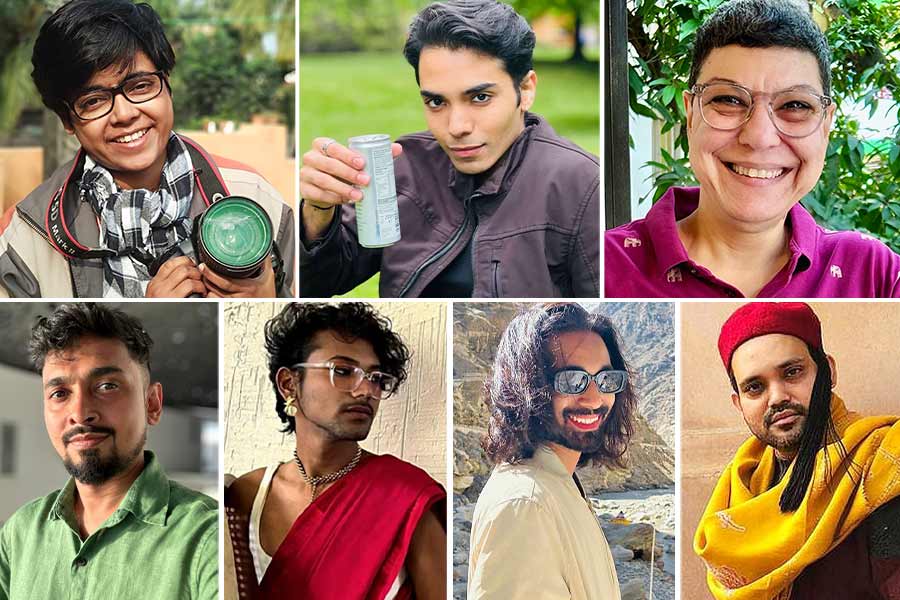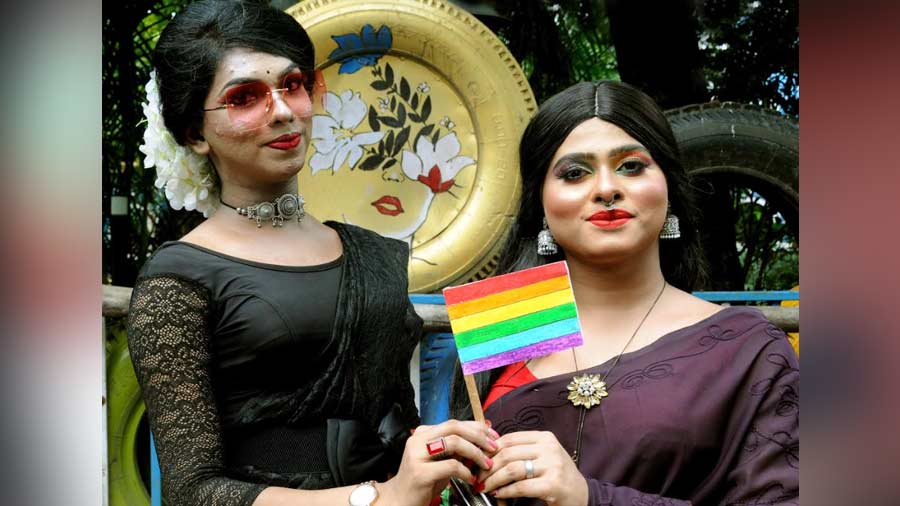Pride is not just a celebration, it’s a fight for visibility, equality and the basic human rights of the LGBTQIA+ community, feels designer Navonil Das, one half of Dev r Nil. As the Pride Month just came to an end, Nil, who is also the co-initiator of Kolkata Pride, tells My Kolkata that despite progress, such as the decriminalisation of Article 377 in India, there is still a long way to go — and why. Read on…
The importance of Pride
There is a discussion and argument about whether Pride is important at all. I think that comes from a place of privilege for a lot of people, who have got their rights or live by their own rules because they have got the privilege to do so. Pride, Pride Month or Pride Walk is not always about a singular person or about one’s own self; it’s about making way for the next generation of people, making way for the people to identify themselves as part of the LGBTQIA+ community. All Pride Month activities are about creating visibility — we are here, we are queer, and we are not alone.
When the discussion and visibility happens through Pride activities, it gives confidence to the next generation who may be questioning themselves, or might be under pressure to either divulge themselves or go back back into the closet. Everything to do with the rainbow — the rainbow flag, rainbow pants, rainbow shoes and the rainbow T-shirt is for any person next door to know that when someone is a queer couple — that they are safe people. It’s for that young kid who sees you in a cafe or a restaurant or just walking outside to know that they are not alone and there is someone like them. So, it has a lot of significance.
Creating a safe space and community
Pride Month is also about creating safe spaces. Pride itself, combined together with Pride Month, creates that certain amount of belonging and the feeling of a community. Hundreds of years of oppression, being shoved into a corner, of no recognition for LGBTQIA+ rights, of not having the basic human right to choose who you want to be with, who you choose to love and who do you want to be at home with — all of it together has become very important across the world especially in the last century, because homosexuality is still illegal in many countries. In India, we have just crossed one of the basic hurdles of decriminalising Article 377, but we have a long way to go.
We are not asking for any special recognition, our rights are the same as any other heteronormative rights, and Pride Month is about asking for support from allies, becoming visible in front of allies and amongst the larger community. It is all interconnected. It’s a huge movement trying to bring about positive changes, and all the activities we concentrate on and everybody talks about together create enough uproar for the ruling government and parties to take note and say that all of these people really need to be treated equally and need to be given their basic rights. That’s what the fight is for us continuously.
The fight for basic rights
People say, ‘What’s the fight? Nobody is putting you in jail’. It’s not about being put in jail. It is about the fact that queer people don’t have basic recognitions like civil rights for couples or the right to be the next of kin. In recent incidents in Kerala, when a queer person passed away, the body was not taken by the family. It was taken by the government and not given to the partner, who was in a live-in relationship with the deceased. Can you imagine what must have gone through the partner’s mind? Even in death, you don’t get the right to be a partner or to have a partner, who will take over and do your last rites.
There are hundreds and thousands of queer couples living in India. Imagine the scenario where at the end of your life, your family who never looked after you, comes and takes over, but the partner is shoved aside. The person who was living with you, who had all the rights to be with you, who should also have property rights and other rights has nothing. We are asking for all these basic rights and Pride Month creates this concentrated form of movement — that’s the significance of it.
Breaking stereotypes within the community
Stereotypes that I or we would like to break within the LGBTQIA+ community viewed from outside, is usually related to the parties — the drag costumes, the performative aspect, the trans people visibility, people walking out on the street in the most expressive and amazing expressions when they come out for Pride March — and to protest. I feel there is too much projection on the queer joy while we forget the queer rage that is seeding inside us. We all are constantly waiting for this queer joy that brings us together in the form of all the Pride activities. The parties, the walk, our costumes are to get people to look at us and for us to say, ‘Hell, we are here and yes, we are different from you’. But at the end, all of this queer joy is going to be converted into queer rage.
At this point of time, it is all about rights. In a country like India, our struggles are very different from what the West has been projecting. Our struggle involves giving our trans people basic rights, job security, because we are still marginalised in society. We don’t get mainstream jobs, we don’t get things easily. Just because a few gay people like us are visible and comfortably mixing with the larger society, doesn’t mean they are the only representatives. There are so many other people who are being constantly forced into marriages, who are being forced into spaces they are not comfortable with and that’s when the queer rage erupts.
We have been facing this for centuries, and the last century has been very significant. We want to bring about a positive change in laws and everything quickly because this cannot continue. At the end of the day, you are forcing queer folks to convert. You think it is something that can be changed. You are forcing us to get married to your sisters, daughters, or children, which is unfair. Your queer sisters or daughters are being forced to get married to men, forced into situations where they have to keep fighting patriarchy in every different way. So, we are trying to break that stereotype that we are not just about queer joy, but that the time for queer rage has begun.
(As told to Debrup Chaudhuri)


